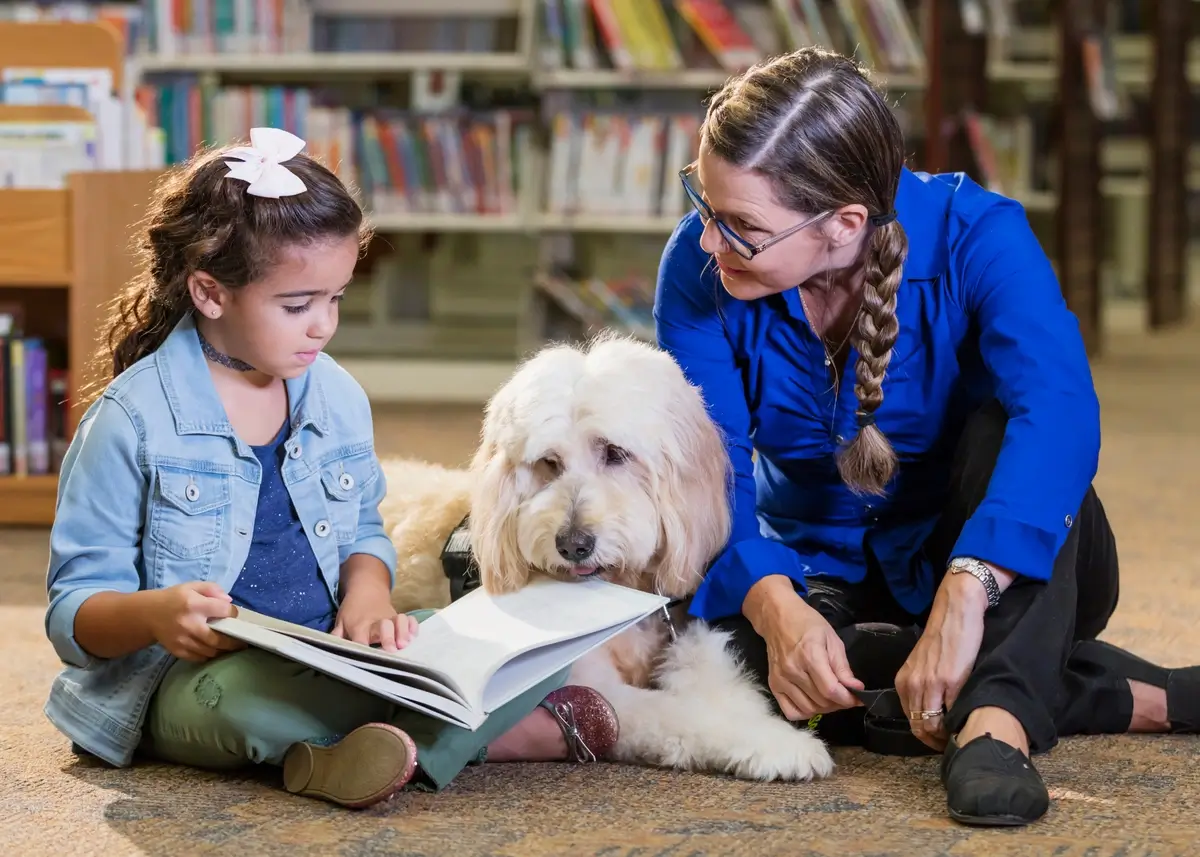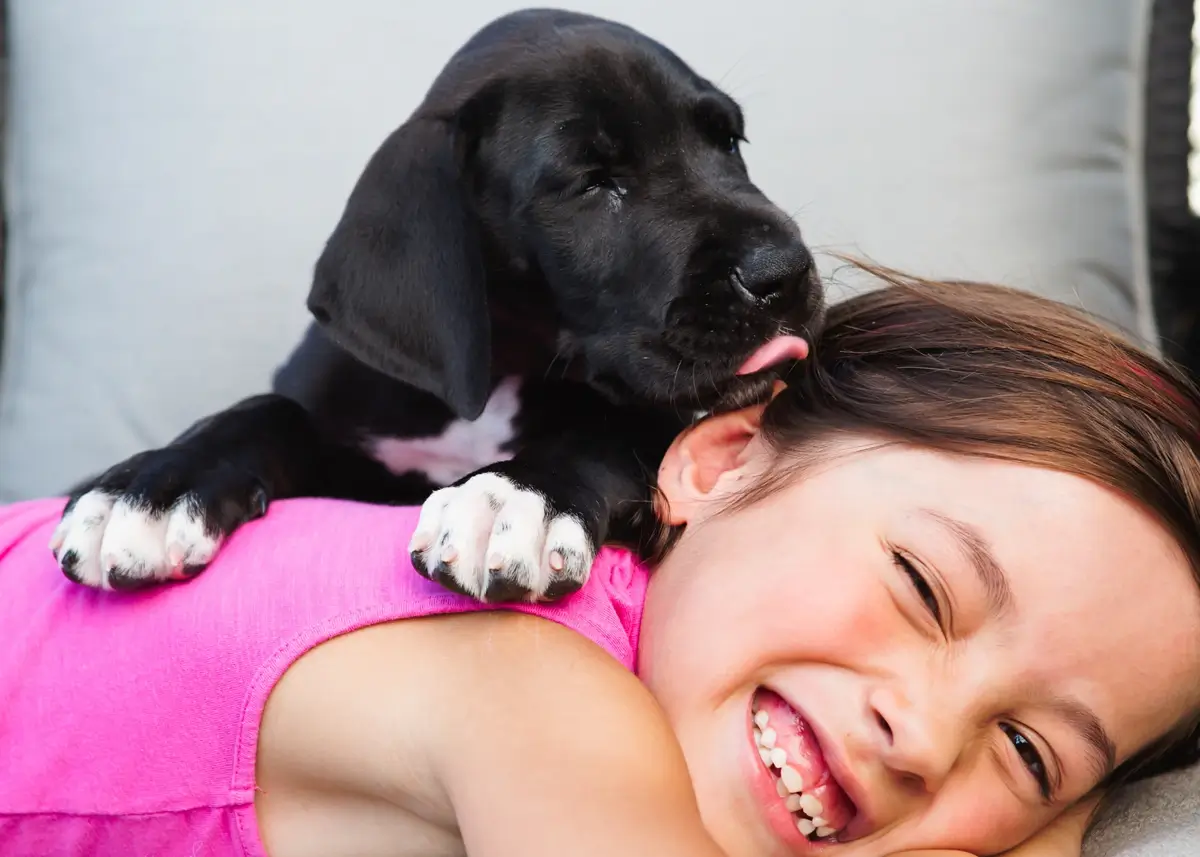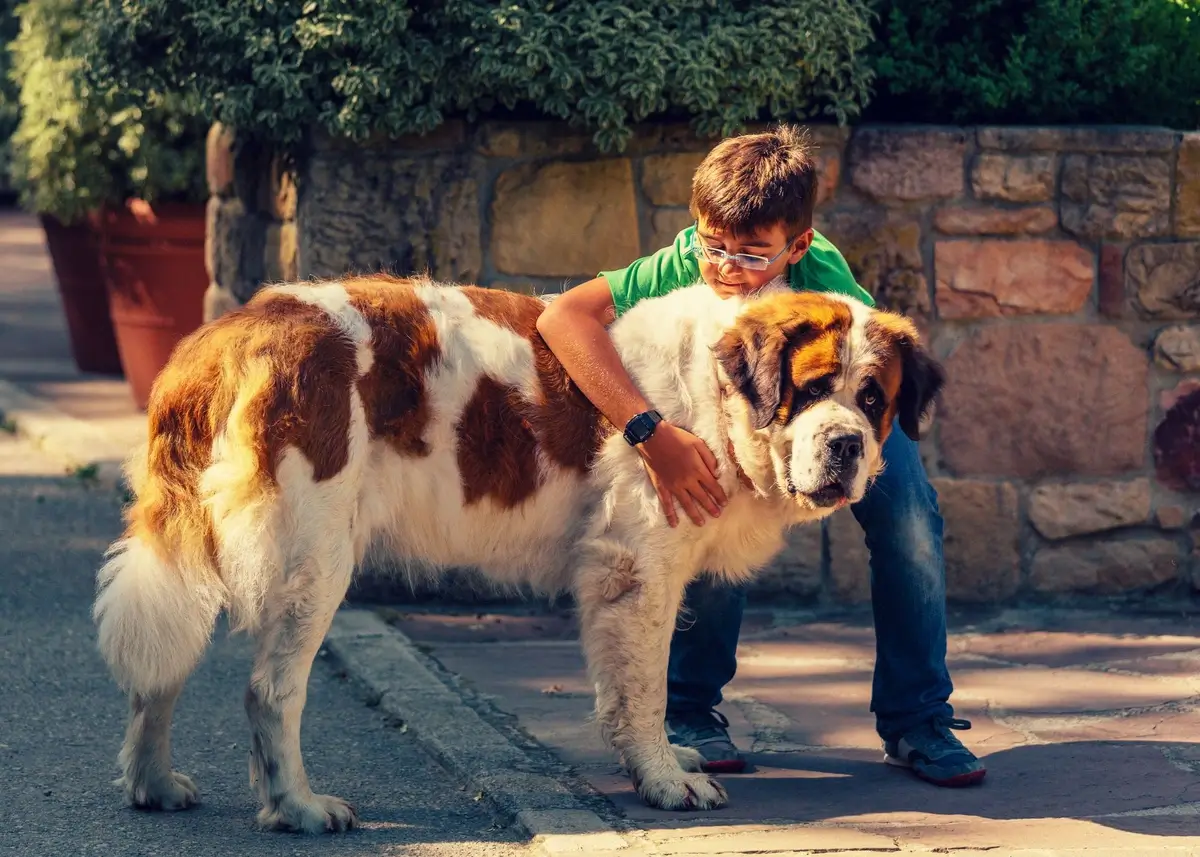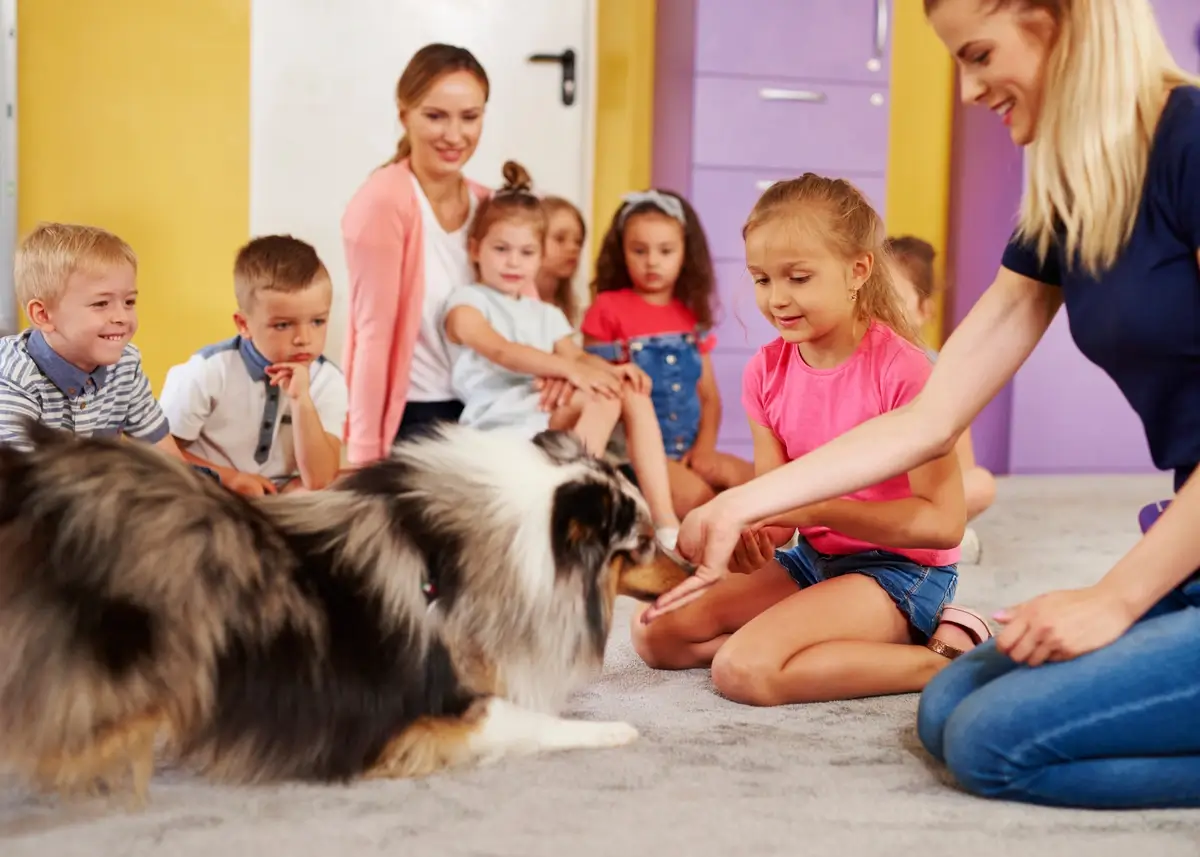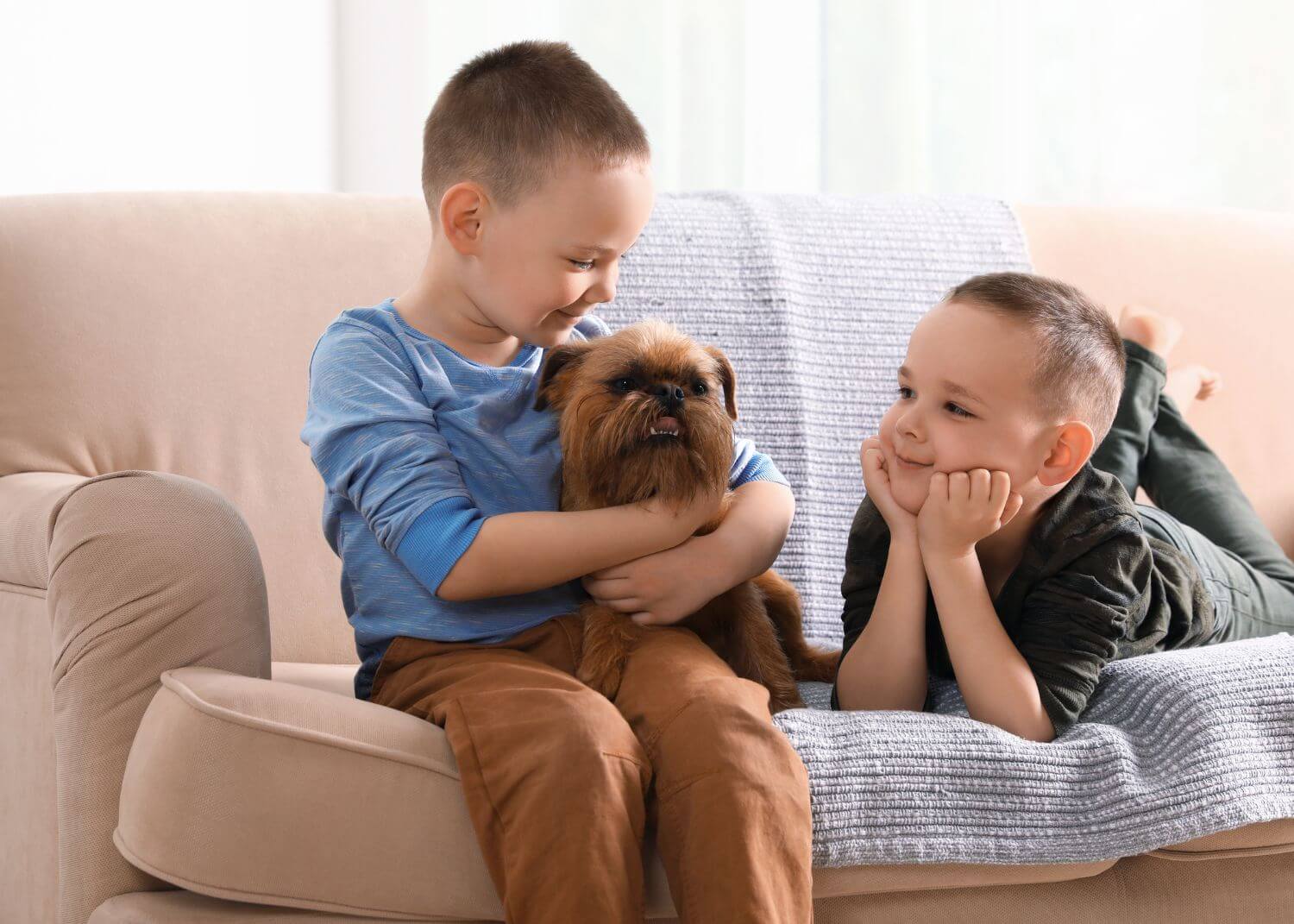When people learn they are going to be parents, all their hopes and dreams unfold as they plan the future: How will they teach their children about the world around them? What’s the best way to raise a child?
We may be consumed with reading baby-related books and websites to prepare, but there may not be a section on the benefits of raising a child with a four-legged best friend. You may have older children who have begged and pleaded with you to adopt a family dog. While all parents want to do what’s right for their children, you may not have considered all the advantages of raising children with puppies for your child’s health and wellness that will have you hitting the “Reserve Me” button in no time!
Discover how children benefit from having a dog by examining how being a puppy owner positively affects your child’s physical, social, and mental health in several ways.
Advantages of Raising Children With Puppies
“We love our furbabies like we do our children!”
You may have heard people say this phrase, and you shouldn’t be surprised based on statistics about American families owning and loving their dogs. Results of the 2023-2024 APPA National Pet Owners Survey found that 66% of U.S. households own a pet, around 86.9 million households, and 65.1 million of those households have dogs as pets. Another study reported that 97% of pet owners consider their pets to be a part of their family. Clearly, some people treat their dogs as an integral part of their family structure, understanding how life is just better with a dog bringing joy and unconditional love to the whole family.
Here are just some of the myriad ways living with dogs benefits children.
Dogs boost babies’ immune system & allergy tolerance
When you have a baby, you would do anything to protect them. Did you know having a dog in the home can improve your baby’s immune system and help prevent allergies from developing?
Scientists published in the Microbiome Journal have studied how dogs affect a baby’s immune system to see if our canine companions help or hurt development. Dogs bring in bacteria from outside the home, influencing the bacteria in a child’s gut microbe composition. Researchers studied gut microbes at an average of 3 months of age in 746 infants. They found those living with dogs pre- and postnatally exhibited an abundance of Oscillospira and Ruminococcus, two beneficial types of bacteria important for reducing allergies and obesity, and a reduction in Streptococcaceae, a harmful bacteria.
Published research in the European Journal of Allergy and Clinical Immunology examines whether or not dogs have a role in preventing future food allergies in babies and children. They studied levels of immunoglobulin E (IgE) in both mothers and babies, a type of antibody produced by the immune system in response to allergens, substances that trigger allergic reactions. Out of 1,303 infants, scientists found that living with dogs was associated with a 90% reduction in the odds of infants developing food allergies, and none of the infants who lived with at least two dogs developed a food allergy when followed up at three years old.
However, it’s important to note that just because you own a dog doesn’t mean your baby will be immune to allergies in their lifetime. Sometimes your baby will still develop allergies in childhood to animals. If your child does suffer from allergies, hypoallergenic puppies would be a good choice to experience all the benefits of having a dog in the household without all the sneezing, wheezing, and itching.
Dogs can help prevent obesity in babies & children
You may have found it interesting to learn that dogs directly have an effect on a baby developing obesity later in life. Common sense tells us a child who moves more will stave off obesity from developing. Researchers at St. George’s, University of London studied movement levels of 2,065 children 9-10 years old for a week. The study revealed that the children with dogs spent more time being physically active each day than those without dogs. While dog breeds require different amounts of daily exercise, involving kids in walking and playing with your puppy helps keep them active.
Dogs lower stress & cortisol levels
Even though a new puppy can cause stress while adjusting to its new home, did you know that puppies can physically reduce stress in your body? A child petting a dog can lower cortisol, a stress hormone, and even lower blood pressure. A child petting a dog can lower cortisol, a stress hormone, and even lower blood pressure. The health benefits of owning a pet for children extend beyond just reducing obesity.
Puppies help kids focus on the present
With the rise of children receiving cell phones, the increase in daily screen time for children is a concern for many parents. Owning a puppy gets kids’ eyes unglued from screens to put them right in the present moment. It’s difficult to lead a sedentary lifestyle when there’s a puppy tugging on your pants! Kids unplug to focus all of their attention on their puppy’s needs.
Puppies demonstrate unconditional love and loyalty to children
Dogs are always ready to lend a listening ear and show unconditional love to kids. It’s hard to be a kid sometimes, and they need an unbiased party to listen to their problems. Kids may be learning that friendships come and go, but your trusty dog will always be by your side, reducing feelings of loneliness and anxiety. They’ll come to learn they can trust their dog to never tell their secrets! Having a healthy model of love and trust helps children develop their idea of how people should treat and care for one another in relationships. The bond between a child and a dog can transcend into a canine soulmate – or a partner in crime when they get into shenanigans.
Dogs help increase literacy skills
Dogs can play a remarkable role in improving children's literacy skills through programs allowing kids to read to dogs or programs offering therapy dogs in libraries. Children often feel more at ease reading to a dog in a canine-assisted reading program than to their peers or adults, allowing them to focus on the text and improve their fluency without worrying about making mistakes or being ridiculed or embarrassed. As children bond with the dog over storytelling sessions, they develop a love for reading that extends beyond the program fostering confidence, fluency, comprehension, and confidence.
Dogs assist children with special needs
Children with special needs require extra assistance to ensure their learning and development, and dogs can help children with special needs in a variety of ways and be an integral part of their routines.
Researchers are studying interactions between dogs and kids who have autism, attention deficit hyperactivity disorder (ADHD), and other conditions. Children with ADHD often struggle in the classroom. Researchers wanted to test the hypothesis that dogs can help children with ADHD focus by pairing one group with actual dogs and the other with puppets of dogs. They found that at the end of the 12-week study, children who read to dogs shared and cooperated more and had fewer behavioral problems than those who read to the puppets.
Dogs encourage emotional growth
Raising an emotionally healthy child and encouraging their growth and development is another priority for parents, and your family puppy can – you guessed it – help with that in several ways.
We’ve all seen children experience a temper tantrum when their feelings are just too big for their understanding. A child with a dog will quickly learn they must regulate their emotions around puppies. Their actions affect others, and they can’t just take their big feelings out on a puppy. A puppy’s licks and cuddles will also help calm down a child.
Caring for puppies provides kids with a sense of accomplishment. They can take pride in helping with simple tasks, like daily feeding or putting toys away. The boost in self-esteem and confidence children feel caring for an animal or the satisfaction they experience when they teach a puppy a new trick will help a child work through a variety of emotions.
Teaching a child to “walk a mile in someone else’s shoes” through empathy can be a tough task. If you have a puppy, your child will naturally practice their empathy skills. Through learning how to understand a dog's needs and behavior, they’ll practice how to be kind, how to help, and how to comfort their puppy, all skills important to have the rest of their lives.
Puppies teach responsibility
We all would love to teach our kids to automatically clean up their messes, right? Having a dog may actually encourage your child to be aware of other tasks that need to be done around the house and put in more effort. Get your child involved in simple actions to benefit your puppy during feeding time, going on walks, or even picking up waste in the yard.
Puppies need a daily routine to thrive as do children. Keeping a schedule alongside your puppy helps kids and puppies block off time for certain activities, giving them a simple routine to follow and practicing skills they’ll need for daily living. Children also learn that not providing regular care negatively impacts their puppy, such as skipping dinner time or having accidents inside due to skipping tasks in the routine.
Dogs are a source of comfort
Unfortunately, children face unthinkable situations from abuse to natural disasters. Children can get lost in the mix amid chaos or messy situations when adults focus on other pressing matters. Comfort dogs help children work through complex emotions they feel when navigating tough times. Paws For Healing offers canine-assisted play therapy and explains that children may speak more to the dog than a therapist about their emotions. “The therapist may say to the child, ‘Razz wonders what happened to that doll’ or ‘Razz is worried about how difficult school has been for you this week,’” notes the Pawsitive Counseling Center. The child is not threatened as much and can give a valuable response to help the child than if they clam up with an adult.
Find a Pawrade Puppy For Your Children
There’s nothing cuter than a small child and a puppy curled up together and napping. If you need some suggestions, check out our recommendations of the best dogs for kids and families and how to introduce your children to your new puppy for valuable tips. Browse our puppies for sale and let us help you find the best puppy to benefit your children!
